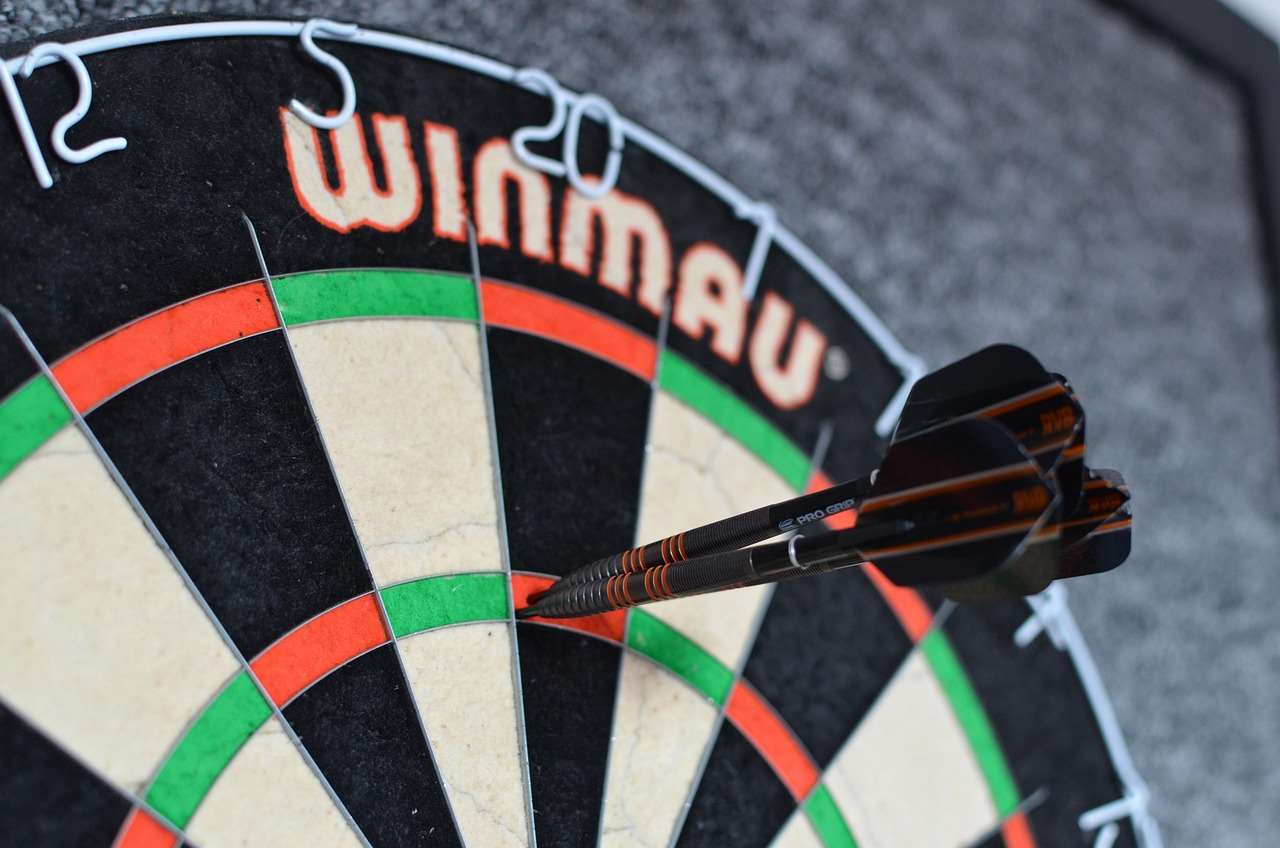The **regulation of skill games** aims to strike a balance between consumer protection and fostering innovation, often by differentiating skill-based contests from gambling activities and applying tailored regulatory frameworks. This article will explore the various aspects of **regulation of skill games**, including the different approaches taken by jurisdictions, the challenges involved, and the future trends shaping this evolving landscape.
⚠️ Still Using Pen & Paper (or a Chalkboard)?! ⚠️
Step into the future! The Dart Counter App handles all the scoring, suggests checkouts, and tracks your stats automatically. It's easier than you think!
Try the Smart Dart Counter App FREE!Ready for an upgrade? Click above!
Why is the Regulation Of Skill Games Necessary?
The surge in popularity of online skill games and esports has highlighted the need for a clear and consistent **regulation of skill games**. Without adequate regulatory oversight, there are several potential risks:
- Consumer Protection: Ensuring fair play and preventing exploitation of players.
- Financial Integrity: Preventing money laundering and other financial crimes.
- Market Stability: Promoting a level playing field for operators and preventing monopolies.
- Ethical Concerns: Addressing issues related to minors, addiction, and responsible gaming.
Different jurisdictions grapple with determining the precise criteria that separate a game of skill from a game of chance, significantly impacting the legal landscape and applicable regulations. This differentiation is critical because games of chance typically face stricter regulatory requirements, including licensing fees, taxes, and operational restrictions, compared to skill-based games.

Defining Skill vs. Chance: A Regulatory Challenge
One of the biggest hurdles in the **regulation of skill games** is defining what constitutes a “skill game” versus a “game of chance.” The definition varies widely across jurisdictions. Several factors are considered:
- Dominant Factor Test: The prevailing approach is to examine whether skill or chance is the dominant factor in determining the outcome of the game.
- Mathematical Models: Statistical analysis can be used to quantify the impact of skill and chance.
- Expert Testimony: Legal cases often involve expert testimony from gaming professionals to assess the skill element in a particular game.
For example, poker is often considered a game of skill, while slot machines are undeniably games of chance. However, many games fall into a gray area, requiring careful consideration by regulators and courts. Some jurisdictions may employ a percentage-based threshold; for instance, if skill accounts for more than 51% of the outcome, the game is classified as skill-based. The impact of Darts Betting And Fantasy Leagues Guide also plays a role in this distinction.
The Role of Skill-Based Gaming Platforms
Skill-based gaming platforms play a crucial role in determining how skill is measured and rewarded. Reputable platforms employ sophisticated algorithms to ensure fairness and prevent cheating. These algorithms often take into account factors such as player experience, reaction time, and strategic decision-making.
Approaches to Regulation Of Skill Games Globally
The **regulation of skill games** varies considerably across the globe. Some countries have specific legislation addressing skill games, while others rely on existing gambling laws or general consumer protection regulations. Let’s examine some of the approaches used:
- Specific Legislation: Some jurisdictions have enacted dedicated laws for skill games, outlining licensing requirements, operational standards, and consumer protections.
- Gambling Laws: In other places, skill games are regulated under existing gambling laws, which may require operators to obtain licenses and comply with strict regulations.
- Consumer Protection Laws: Some jurisdictions rely on general consumer protection laws to address issues such as unfair practices and misleading advertising.
- Self-Regulation: Industry associations may establish codes of conduct and best practices to promote responsible gaming and fair competition.
For instance, in some regions, daily fantasy sports (DFS), a form of skill-based competition, are governed by specific legislation that outlines eligibility requirements, prize structures, and consumer protection measures. In contrast, other regions might categorize DFS as gambling, subjecting it to more stringent regulations.

Key Regulatory Requirements for Skill Games
Depending on the jurisdiction, operators of skill games may be subject to various regulatory requirements. These requirements are designed to ensure fair play, protect consumers, and prevent illegal activities. Some common requirements include:
- Licensing: Obtaining a license from a regulatory authority is often a prerequisite for operating skill games.
- Auditing: Regular audits may be required to ensure compliance with regulatory standards and fair gaming practices.
- Age Verification: Operators must implement measures to verify the age of players and prevent minors from participating.
- Responsible Gaming: Promoting responsible gaming practices and providing resources for players who may be at risk of addiction.
- Data Protection: Protecting player data and complying with privacy regulations.
- Anti-Money Laundering (AML): Implementing measures to prevent money laundering and other financial crimes.
Compliance with these requirements can be complex and costly, but it is essential for ensuring the long-term sustainability and integrity of the skill games industry. Robust KYC (Know Your Customer) and AML procedures are particularly critical in preventing illicit activities and safeguarding the financial ecosystem of skill-based gaming platforms.
The Role of Technology in Regulation
Technology plays a significant role in both enabling and regulating skill games. Advanced algorithms and monitoring systems can be used to detect cheating, ensure fair play, and track player behavior. Regulators can also leverage technology to monitor compliance with regulatory requirements and enforce laws.
Challenges in the Regulation Of Skill Games
Despite the growing importance of **regulation of skill games**, several challenges remain:
- Defining Skill: The subjective nature of skill makes it difficult to define and measure consistently.
- Keeping Pace with Innovation: The rapid pace of technological innovation in the gaming industry makes it challenging for regulators to keep up.
- Cross-Border Issues: The global nature of online skill games creates challenges for enforcing regulations across borders.
- Enforcement: Effectively enforcing regulations and combating illegal activities can be difficult, especially in online environments.
For example, the emergence of new gaming formats, such as blockchain-based skill games, presents novel regulatory challenges. Regulators must adapt their approaches to address the unique characteristics of these emerging technologies while maintaining the principles of consumer protection and fair competition.

The Future of Regulation Of Skill Games
The future of **regulation of skill games** is likely to be shaped by several factors:
- Harmonization: Increased efforts to harmonize regulations across jurisdictions to create a more level playing field.
- Technology-Driven Regulation: Greater reliance on technology to monitor compliance and enforce regulations.
- Emphasis on Consumer Protection: A continued focus on protecting consumers and promoting responsible gaming.
- Collaboration: Increased collaboration between regulators, industry stakeholders, and academic experts to develop effective regulatory frameworks.
As the skill games industry continues to evolve, regulators will need to adapt their approaches to address new challenges and opportunities. This includes exploring innovative regulatory models, such as regulatory sandboxes, which allow companies to test new products and services in a controlled environment.
The Impact of Emerging Technologies
Emerging technologies, such as blockchain and artificial intelligence, are likely to have a significant impact on the future of **regulation of skill games**. Blockchain technology can enhance transparency and security in gaming transactions, while AI can be used to detect cheating and promote responsible gaming. However, these technologies also present new regulatory challenges that must be addressed proactively. Exploring How Betting Companies Sponsor Darts is also important in the context of regulation.
Best Practices for Skill Game Operators
Operators of skill games can take several steps to ensure compliance with regulations and promote responsible gaming. These include:
- Staying Informed: Keeping up-to-date with the latest regulatory developments and best practices.
- Implementing Robust Compliance Programs: Developing and implementing comprehensive compliance programs that address all relevant regulatory requirements.
- Training Employees: Providing training to employees on regulatory compliance and responsible gaming.
- Conducting Regular Audits: Conducting regular internal audits to identify and address any compliance gaps.
- Engaging with Regulators: Maintaining open communication with regulators and seeking guidance on compliance matters.
By adopting these best practices, operators can demonstrate their commitment to responsible gaming and foster a culture of compliance within their organizations. A proactive approach to compliance can help operators avoid costly penalties and maintain a positive reputation in the industry.

The Importance of Responsible Gaming in Skill Games
While skill games are generally considered less risky than traditional gambling, it is still important to promote responsible gaming practices. This includes:
- Setting Limits: Encouraging players to set limits on their spending and time spent playing.
- Providing Resources: Providing access to resources for players who may be at risk of addiction.
- Promoting Awareness: Raising awareness about the risks of excessive gaming.
- Implementing Self-Exclusion Programs: Offering self-exclusion programs that allow players to voluntarily ban themselves from participating in skill games.
Responsible gaming measures should be integrated into all aspects of the skill games ecosystem, from game design to marketing and customer support. Operators have a responsibility to protect their players and create a safe and enjoyable gaming environment. This also involves understanding the Bookmaker Sponsorship Professional Darts aspects of the industry.

Conclusion: Navigating the Complex Landscape of Skill Game Regulation
The **regulation of skill games** is a complex and evolving area. Navigating this landscape requires a thorough understanding of the legal and regulatory requirements in different jurisdictions, as well as a commitment to responsible gaming and consumer protection. Operators who prioritize compliance and ethical practices will be best positioned for long-term success in this dynamic industry.
Ultimately, effective **regulation of skill games** benefits all stakeholders by fostering a fair, transparent, and sustainable gaming ecosystem. By working together, regulators, industry stakeholders, and consumers can ensure that skill games continue to provide entertainment and economic opportunities while minimizing the risks associated with gambling. If you’re an operator or developer, consider consulting with legal experts to ensure full compliance. This article touches on many facets, and further, specialized guidance is recommended.
Hi, I’m Dieter, and I created Dartcounter (Dartcounterapp.com). My motivation wasn’t being a darts expert – quite the opposite! When I first started playing, I loved the game but found keeping accurate scores and tracking stats difficult and distracting.
I figured I couldn’t be the only one struggling with this. So, I decided to build a solution: an easy-to-use application that everyone, no matter their experience level, could use to manage scoring effortlessly.
My goal for Dartcounter was simple: let the app handle the numbers – the scoring, the averages, the stats, even checkout suggestions – so players could focus purely on their throw and enjoying the game. It began as a way to solve my own beginner’s problem, and I’m thrilled it has grown into a helpful tool for the wider darts community.